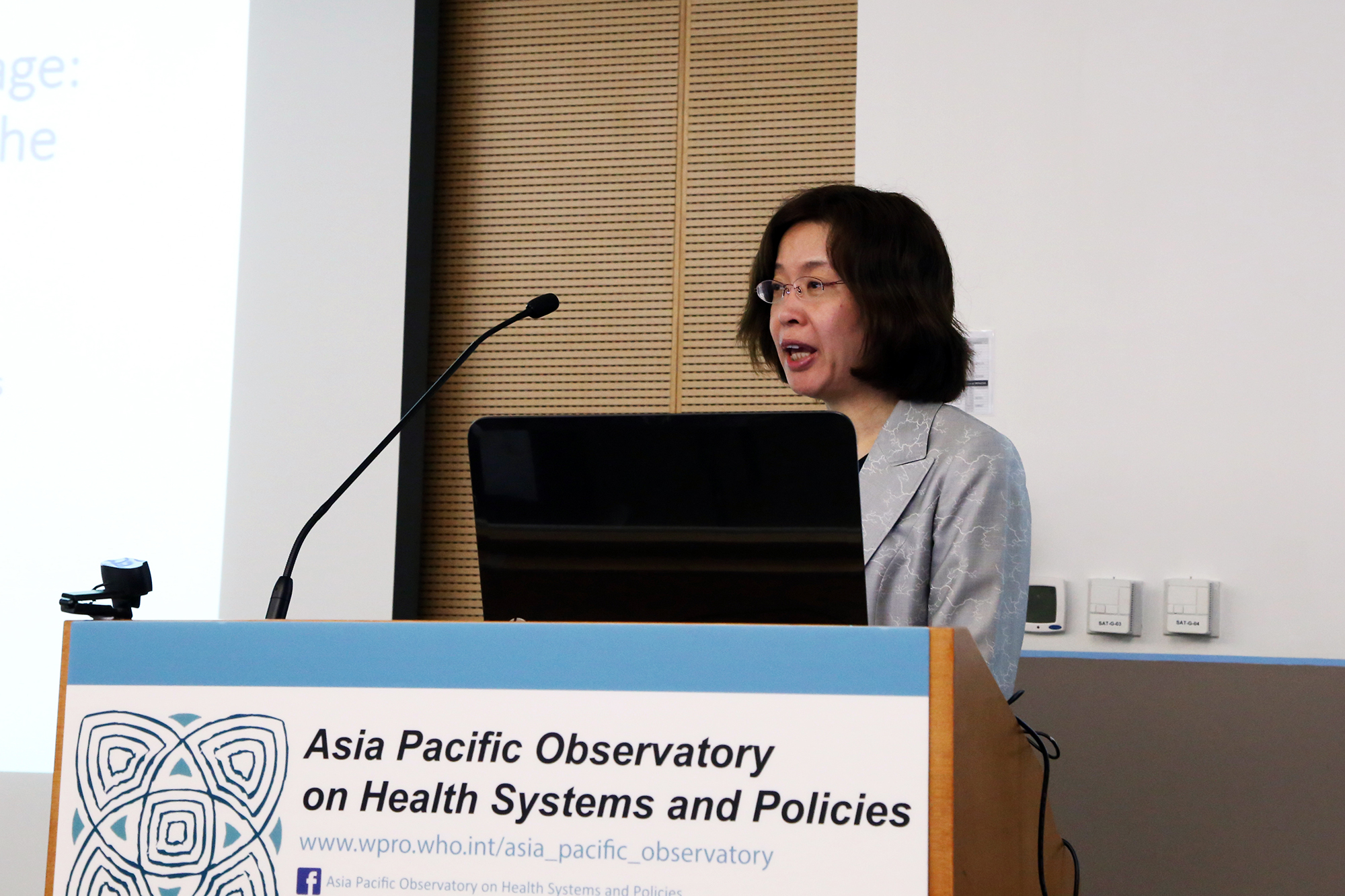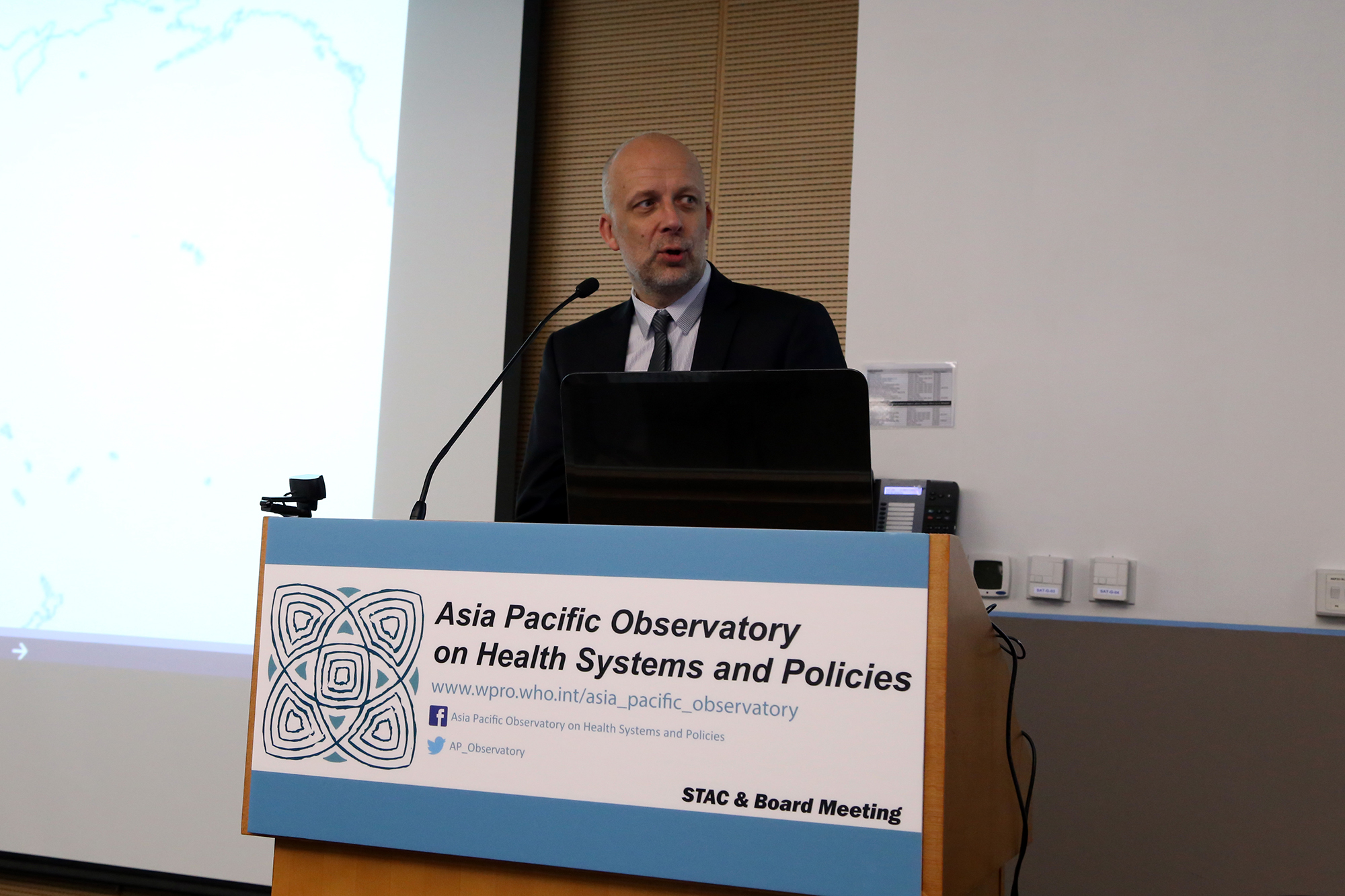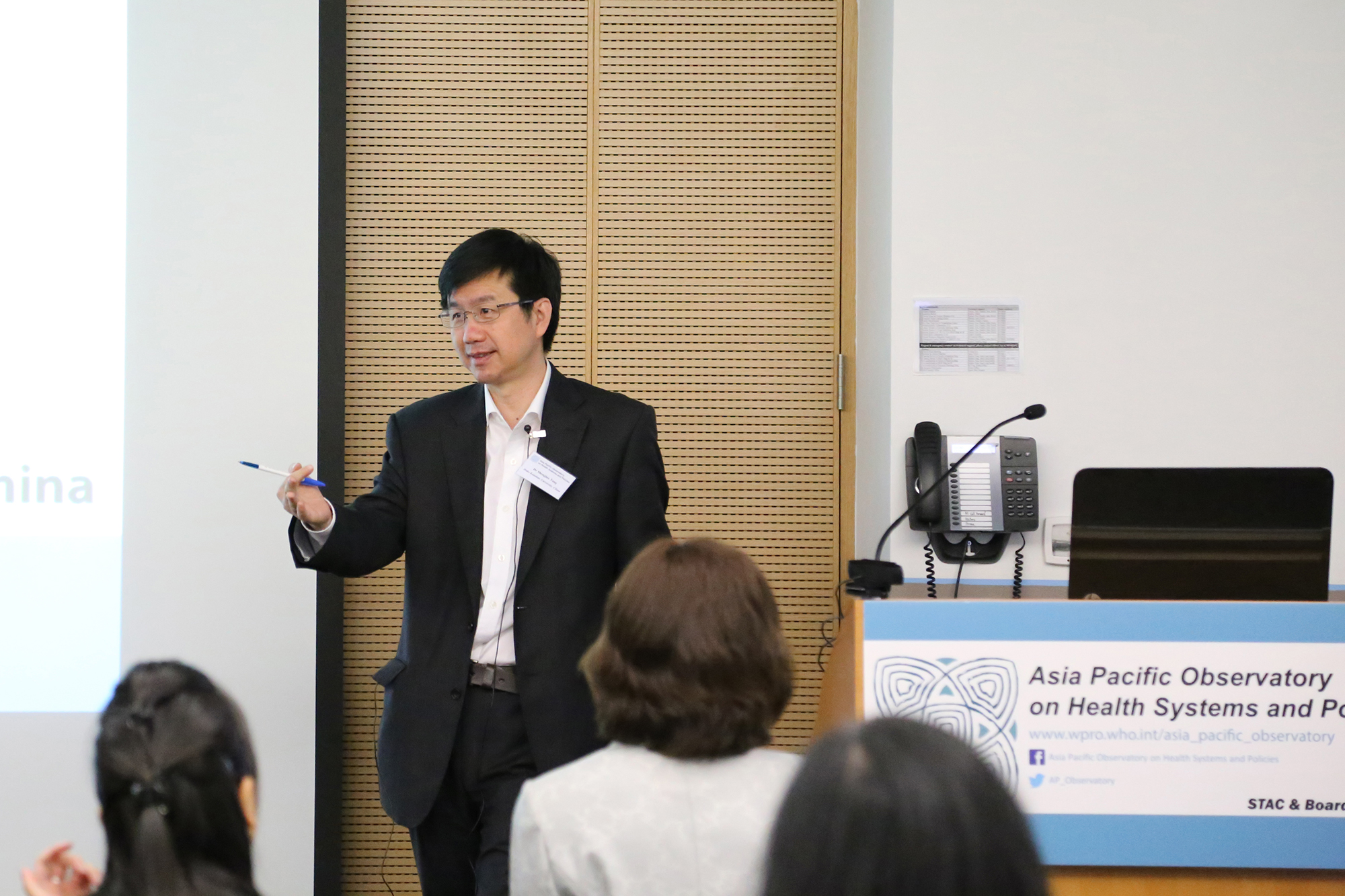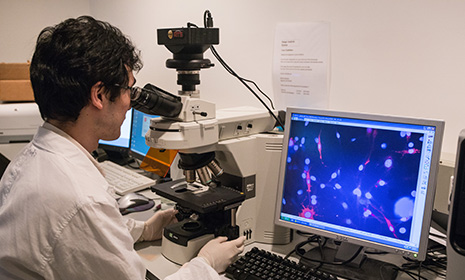Seminar on "Health Care Reform in China"
The School of Public Health of Li Ka Shing Faculty of Medicine of The University of Hong Kong co-hosts a seminar by representative of the National Health and Family Planning Commission of the People’s Republic of China today (2 December 2016). This presentation is part of the Strategic Technical Advisory Committee meeting of The Asia Pacific Observatory on Health Systems and Policies (hosted by the World Health Organization since 2011), a collaborative partnership of interested governments, international agencies, foundations, and researchers that promotes evidence-informed health system policy regionally and in all countries in the Asia-Pacific region. The School had the privilege of hosting the said bi-annual regional meeting at The University on 2-3 December 2016 and more than 20 delegates from countries in the region had attended the meeting.
Dr Nima Asgair-Jirhandeh, Director of The Asia Pacific Observatory on Health Systems and Policies (APO), opened the seminar and gave an overview of the vision and mission of the organization. This was followed by a presentation by Dr Yanwei Wu, Programme Officer of the Department of International Cooperation of National Health and Family Planning Commission of the People’s Republic of China, on the latest update on health care reform in China. The discussion was then open to the floor and participants had engaged in interactive dialogue with delegates of the APO on this very important topic in national healthcare policy.
About The Asia Pacific Observatory on Health Systems and Policies
The Asia Pacific Observatory on Health Systems and Policies (the APO) is a collaborative partnership of interested governments, international agencies, foundations, and researchers that promotes evidence-informed health system policy regionally and in all countries in the Asia Pacific region.
The APO:
- Collaboratively identifies priority health system issues across the Asia Pacific region;
- Develops and synthesizes relevant research to support and inform countries’ evidence-based policy development; and
- Builds country and regional health systems research and evidence-informed policy capacity.
About the School of Public Health, Li Ka Shing Faculty of Medicine, HKU
The School of Public Health, Li Ka Shing Faculty of Medicine, HKU has a long and distinguished history in public health education and high impact research. With world leading research in infectious diseases as well as on non-communicable diseases of both local and global importance, the School has made significant contributions through its research and advocacy to improve the health of populations and individuals, both locally and globally. The School is a leading research and teaching hub in public health on influenza and other emerging viruses, control of infectious and non-communicable diseases, tobacco control, air pollution, psycho-oncology, behavioral sciences, life-course epidemiology, and health economics, health services planning and management. This work has informed international (e.g. the World Health Organization, Food and Agriculture Organisation of the United Nations), national and local public health policies.
Media enquiries
For media enquiries, please contact Ms Cherry Chui (Tel: 39179044) of the School of Public Health, Li Ka Shing Faculty of Medicine, HKU.
Dr Nima Asgair-Jirhandeh, Director of The Asia Pacific Observatory on Health Systems and Policies (APO), opened the seminar and gave an overview of the vision and mission of the organization.
Dr Yanwei Wu, Programme Officer of the Department of International Cooperation of National Health and Family Planning Commission of the People’s Republic of China, gave a presentation on health care reform in China.
Dr Toomas Palu, Chair of Strategic Technical Advisory Committee of APO and Sector Manager for Health, Nutrition and Population, World Bank
Dr Shenglan Tang, Director, Duke Kunshan University
A group photo of APO delegates at the 4th Strategic Technical Advisory Committee meeting of the APO.













.png)
